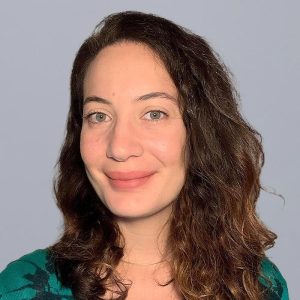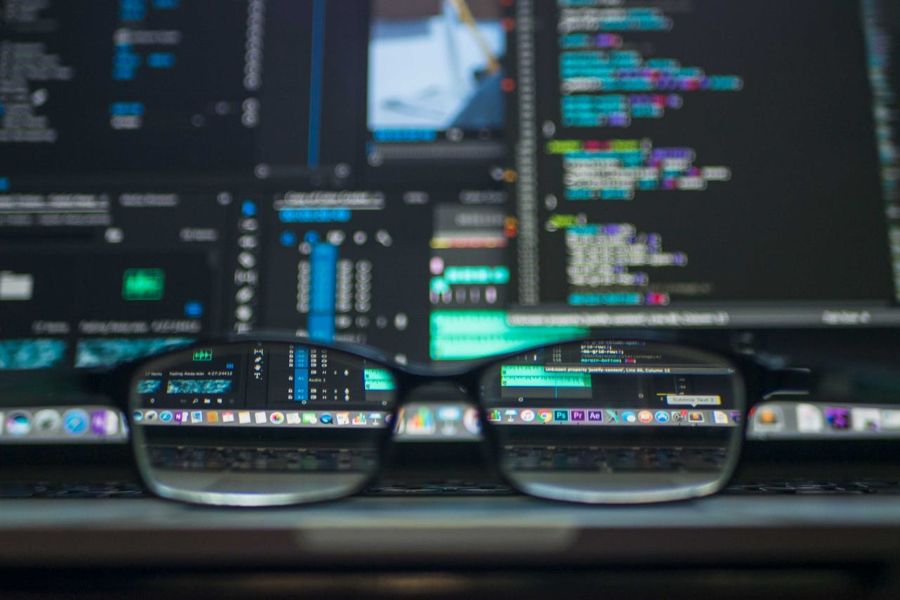Article
Sofia Almeida, Claire Machan & Heloisa Becker
The Need for Safe Internet Access in Youth Detention Centers
The need for safe internet access in youth detention centres1 has grown substantially in recent years, with digital literacy being recognised as essential for education, employment, and everyday life2. This aligns with broader European and national strategies, such as the EU’s Digital Education Action Plan (2021-2027), which aims to enhance digital skills across all sectors of society, and the European Commission’s ‘Digital Decade’ goal of ensuring that a minimum of 80% of the population possesses basic digital literacy by 2030. In Portugal, the National Digital Competences Initiative, e.2030 (Portugal INCoDe.2030), also emphasises the importance of developing digital competencies for social inclusion and personal empowerment.
These policies highlight the critical need to provide safe and structured access to the internet, even within youth detention centres, to ensure that these young individuals are not left behind in an increasingly digital world. For incarcerated youth, this is crucial to develop their social skills, self-esteem, and the knowledge necessary for successful reintegration into society. Further, research highlights that digital inclusion fosters rehabilitation and keeps detainees connected to essential support networks, including family, which is vital for their reentry into society3.
However, providing this access presents numerous challenges, particularly concerning security, privacy, and potential misuse. These issues stand to prevent youth in such facilities at risk of acquiring digital skills that are increasingly critical for modern education and employment opportunities. The COVID-19 pandemic underscored the urgency of addressing digital access, with increased reliance on online tools for education and communication4.
The Triangle Platform: A Secure Digital Solution for Youth Detention Centres
The Triangle platform provides an innovative solution to the challenge of providing safe digital educational access for incarcerated youth. This platform offers a range of educational resources, focusing on teaching digital skills within a controlled and secure environment. It addresses concerns about privacy and misuse by enabling young detainees to explore the internet safely via pre-approved websites (whitelisted or blacklisted), tailored educational content, and vocational skills training essential for reintegration into society.
In addition to supporting the young detainees, Triangle also offers tools and guidelines to staff, such as Triangle’s Guide – a document that outlines the platform creation and provides instruction on implementation. This ensures that digital education can be integrated effectively while meeting both security and educational goals.
Through the modernisation of education in prisons, incarcerated individuals have embraced self-directed learning and taken control of their rehabilitation journey, in turn this has demonstrated a positive decrease in recidivism2. Indeed, Chappell and Shippen5 also note that implementing digital learning in youth detention centres and prison establishments can be a source of motivation for the detainees, facilitating the the development of community living skills and self-management skills6,7. In the same essence, Triangle provides a vital bridge to help these young people overcome the unique barriers they face in accessing education and workforce preparation.
Regional Implementation and Success of the Triangle Platform
The Triangle platform has been successfully piloted in several European countries, including Belgium, the Netherlands, and Portugal – with valuable feedback collected from young participants being overly positive. For instance, a young participant from Belgium highlighted how the platform represented “a very interesting step in the right direction for digital learning in a closed institution“, while another from Portugal shared that it was “a useful platform for learning new things“.
The platform is divided into four segments – Belgium, the Netherlands, Portugal, and Europe – with the three region-specific segments’ content designed to address local needs, languages, and contexts. The European hub, available in English,offers a broader array of content suited to different cultural and educational settings.
The Portuguese TRIANGLE Platform
Led by IPS_Innovative Prison Systems and Aproximar – Cooperativa de Solidariedade Social, the Portuguese version of the platform features eight unique sections, each designed to provide a comprehensive educational experience:
1. Relationship Academy: Focuses on personal development, family issues, and parenting.
2. From 0 to 100!: Encourages lifelong learning and continuous personal growth.
3. Travel the World: Explores global citizenship and active engagement with societal issues.
4. Embrace Your Talent: Prepares young people for the job market, with tools for CV writing and job applications.
5. Technology Genie: Teaches digital literacy.
6. First-Aid Kit: Addresses health and well-being.
7. Money in Your Wallet: Focuses on financial literacy and entrepreneurship.
8. Guardian of the Planet: Covers sustainability and social responsibility.
Each section includes topics presented through multimedia content, practical activities, and interactive tests that young users can explore via external, pre-selected resources, promoting dynamic and safe learning. This innovative approach not only provides crucial information but also motivates young people to develop the key skills they need for a successful future.
Moving Towards Change – Recommendations for Policymakers
To ensure that young people in detention, or education centres are equipped with the skills they need for modern life, policymakers must be informed of the benefits of digital inclusion. Based on the Triangle project’s findings, several recommendations have been developed for decision-makers:
1. Develop a Policy for Digital Education in Closed Institutions
A comprehensive policy for digital education in youth detention centres is essential. This policy should provide a unified framework that includes clear guidelines on hardware and software usage, internet access, security measures, and the roles of educators and staff. Digital coordinators should be appointed to oversee the integration of technology, ensuring all aspects of digital education are aligned with the institution’s goals. Policies should also be tailored for open, half-open, and closed facilities to accommodate the unique needs of each setting.
2. Create a Quality Digital Space
Secure, stable internet and well-maintained infrastructure is vital for supporting digital education initiatives. A dedicated budget should be allocated for this purpose, with clear responsibility assigned to relevant stakeholders (e.g., institutions, welfare services, educational services),ensuring continuous access to digital tools and resources, facilitating youth education and personal development.
3. Implement Professional Development Policies
Teachers and social workers must receive ongoing training to familiarise themselves with new digital tools, like the Triangle platform. This training will empower them to effectively guide young people through their digital learning journey. Continued professional development should include opportunities to practice using digital resources, share best practices with colleagues, and develop new educational materials tailored to young people’s needs.
4. Recognise and Minimise Security Risks
While digital platforms like Triangle are designed with robust security measures, internet access inevitably comes with risks. Instead of denying access, institutions should implement digital security policies and procedures that minimise these risks. Regular monitoring of pre-approved websites, staff training, and communication with platform coordinators can help ensure that young people benefit from digital tools safely, without compromising educational opportunities.
5. Promote Creative Approaches to Learning
Interactive digital learning methods, such as puzzles, quizzes, and videos, are highly effective in engaging young people, particularly those who prefer digital formats over traditional text-based learning. These creative approaches help bridge the gap between theoretical knowledge and practical skills, making it easier for young people to apply what they’ve learned upon re-entering society.
6. Improve Accessibility
Digital platforms must be accessible to all users, including those with disabilities or language barriers. Educational policies should ensure that digital tools cater to a diverse range of learning styles and abilities, promoting inclusivity, and ensuring that no one is left behind.
7. Adopt a Multi-Sector Approach for Quality Digital Education
Collaboration between various sectors, including justice, vocational training, digital experts, and the young people themselves is essential for developing a comprehensive digital education strategy. A multi-sector approach, bringing together different perspectives and stakeholders will ensure that the diverse and unique needs of youth in detention are addressed effectively.
Digital literacy is a critical component in empowering young people and preparing them for life beyond detention. The Triangle platform offers a valuable tool for fostering digital skills in a secure, engaging environment. By capturing their interests and enhancing their digital literacy, the Triangle platform plays a pivotal role in reducing recidivism and fostering long-term reintegration into society.
The TRIANGLE project is led by Click F1 (The Netherlands) and partnered by the Stichting Defence for Children International (The Netherlands), IPS_Innovative Prison Systems (Portugal), Eduvier (The Netherlands), the Flemish Support Centre for Adult Education (Belgium), The Federal Public Service Justice (Belgium), Aproximar (Portugal), Foundation 180 (The Netherlands), and Opgroeien (Belgium).
For more information about the TRIANGLE project, please visit www.eu.trianglenow.eu
References
1. In Portugal, the literal translation of ‘centros educativos’ is “education centres”.
2. McDougall, C., Pearson, D. A. S., Torgerson, D. J., & Garcia-Reyes, M. (2017). The effect of digital technology on prisoner behavior and reoffending a natural stepped-wedge design. Journal of Experimental Criminology, 13, 455–482. Retrieved from: https://psycnet.apa.org/doi/10.1007/s11292-017-9303-5
3. Toreld, E. M., Haugli, K. O., & Svalastog, A. L. (2018). Maintaining normality when serving a prison sentence in the digital society. Croatian Medical Journal, 59(6), 335–339. doi: https://doi.org/10.3325/ cmj.2018.59.335
4. Tolou-Shams, M., Bath, E., McPhee, J., Folk, JB., Porche, M., & Fortuna, L. (2022). Juvenile Justice, Technology and Family Separation: A Call to Prioritize Access to Family-Based Telehealth Treatment for Justice-Involved Adolescents’ Mental Health and Well-Being. Front Digit Health. doi: 10.3389/fdgth.2022.867366.
5. Chappell, C., & Shippen, M. (2013). Use of technology in correctional education. Journal of Correctional Education,64(2), 22–40.
6. Kerr, A., & Willis, M. (2018). Prisoner use of information and communications technology. Trend Issues: Crime Criminal Justice [electronic Resource], 560, 1–19.
7. Badejo, J. A., & Chakraborty, J. (2022). The effects of technology on incarcerated student motivation and engagement in classroom-based learning. Human-Intelligent Systems Integration, 4(3-4), 71–80. doi: https://doi.org/10.1007/s42454-022-00044-8

Sofia Almeida is a Consultant & Researcher at IPS_Innovative Prison Systems in the Rehabilitation, Reintegration and Community Portfolio and the Radicalisation,
Violent Extremism and Organised Crime Portfolio. She has a bachelor’s degree in Psychology from the Beira Interior University, in Covilhã, Portugal, and a master’s degree in Criminology from the Faculty of Law, University of Porto, Portugal.

Claire Machan is a Consultant & Researcher and the Rehabilitation, Reintegration and Community Portfolio Coordinator at IPS_Innovative Prison Systems. She holds a BSc in Criminology & Psychology from the University of New South Wales (UNSW), a PgCert & Honours degree in Psychological Science from the Australian College of Applied Psychology (ACAP), a Master of Forensic Mental Health from Griffith University, and is upon completion of her PhD in Experimental (Legal) Psychology at University College London (UCL). Prior to working with IPS, Claire spent 5 years applying her expertise to co-develop and lead lectures on UG and PG programs in Applied Forensic Psychology at BNU. She has also delivered collaborative educational training workshops with HMPPS staff, MET Police Officers, Victim Support, RJ Practitioners, and ex-offenders.

Heloisa Becker is a Consultant & Researcher at IPS_Innovative Prison System’s Rehabilitation, Reintegration & Community Portfolio. Holding a bachelor’s degree in law and a postgraduate degree in Citizenship and Human Rights in the context of Public Policy from Brazil, Heloisa is currently pursuing her Master’s degree in Social Policy at ISCSP/University of Lisbon. With experience in the field of public policies and in social projects, particularly within non-governmental organisations, Heloisa has worked with young offenders in the Social-educational System in Brazil, gaining valuable insights into the complexities of their rehabilitation process. In addition, Heloisa has valuable experience working with restorative justice practices and has actively participated in restorative justice initiatives.


